

Master’s in Experimental Psychology Programs and Resources
Experimental psychologists use experimental methods on humans and animals to study the psychology of topics such as (but not limited to) development, memory, emotion, cognition, learning, and sensory/perception. Most research involves gathering data and manipulating variables in a laboratory setting in order to advance scientific understanding in a particular field of study. Postgraduate experimental psychology degree programs are designed to prepare students for professions in academic, industrial or institutional settings that may include research, administration, teaching, data analysis, psychological science, health/medical sciences, drug development, or independent psychological scientific research. Highlighted in the tables below are U.S. colleges that are ranked by affordability and offer experimental psychology graduate degree programs. There is also a resource section at the bottom of the page with useful information on experimental psychology.

Most Affordable Experimental Psychology Master’s Programs
Most affordable experimental psychology doctorate programs, experimental psychology associations, journals, and resources, experimental psychology related podcasts.

49: Frank McAndrew, PhD – Experimental and Evolutionary Social Psychologist and Professor Discusses his Journey, The Power of Gossip, and the Psychology of Creepiness

28: Tera D. Letzring, PhD – Professor of Psychology and Department Chair at Idaho State University Recalls Her Academic and Professional Journey

24: Andrea D. Clements, PhD – Psychology Professor and Researcher Finds her Passion and Calling

6: Heather C. Lench, Ph.D. – Surfing the Emerging Interdisciplinary Field of Affective Science to Better Understand Human Thought and Behavior

Ranking Top 10 Graduate Programs in Experimental Psychology
- By Kristen Fescoe: BA Psychology; MS Clinical and Forensic Psychology
- Published November 20, 2014
- Last Updated November 20, 2023
- Read Time 16 mins
Do you want to work in a lab setting and perform research on human behavior and mental processes using the scientific method? Does the idea of reading case studies from many different areas of the field of experimental psychology sound exciting? This article will shed light in gathering data on the graduate programs available in the field of experimental psychology. The rise in the number of graduate programs in the field of experimental psychology is directly correlated to the importance that the field has in America. Psychologists in this field are the ones innovating methodologies and practices that are used every day all across the country. They provide practicing psychologists with up-to-date and accurate information on this ever-evolving psychology. With new opportunities popping up all over in the experimental psychology category, more programs are offering programs in experimental psychology.
Experimental psychology graduate programs are excellent opportunities for professionals interested in research for their entire careers. With a focus on teaching advanced experimental methods of research, experimental psychology programs provide students with ways to enhance their own research projects. The programs listed below have different specializations and methods of teaching but all are reputable degrees that will help students begin their experimental psychology careers .
Methodology
This ranking was created by utilizing information collected on the National Council for Education Statistics and its publicly available College Navigator database. An original pool of 40 schools was assembled by searching for graduate programs in experimental psychology. Each program was then independently reviewed to ensure that it met the criteria for this ranking. The final 10 schools were chosen based on the school’s total estimated in-state graduate tuition rate for the length of the program. The programs that are listed as having tuition paid by the university were ranked based on their ranking available from U.S. News and World Report.
10. The University of Memphis
Memphis, tennessee, master of science/doctor of philosophy in experimental psychology, tuition: tuition paid by university.
The University of Memphis offers a graduate program in experimental psychology that has a built-in master’s degree in the course of study. This is an apprentice-based model that focuses on students building their own training plans with the assistance of a mentor.
The program starts students off with graduate-level courses, enabling students to learn more about research design as well as methodology. Introductory courses in their chosen specialization are also available at this step. Students will need to complete:
- a minimum of 90 credit hours of coursework
- a master’s thesis
- the Mid-Point Project
- a doctoral dissertation
More information on this degree can be found by contacting the school’s graduate admissions office.
9. Washington State University at Vancouver
Vancouver, washington, doctor of philosophy in experimental psychology.
Washington State University of Vancouver has one of the oldest graduate programs in experimental psychology. This program is known for developing some of the best experimental psychologists in the country. These professionals routinely work in high-placed positions in the public and private sectors.
This program has five specialization areas, including:
- Behavior Analysis
- Biological-Psychology
- Sensation and Perception
- Social/Organizational Psychology
The program can be completed in five years and students may earn a master’s along the way. The program focuses on:
- research projects
This degree is also unique in that students are fully funded for the first year of study. After that, the school continues to pay for the degree so long as the student works at the school as an educator or as a researcher. This degree requires:
- a doctoral thesis
- a set of qualifying exams
8. The University of Louisville
Louisville, kentucky.
The University of Louisville offers a graduate program in experimental psychology. This degree is for professionals interested in working as researchers or academics in one of the core areas of psychology with a special focus in research.
This program is offered to students free of charge. Students take on assistantships and other funding in order to complete their studies. Core curriculum requirements for this degree are kept at a minimum to ensure that students spend the majority of their time focused on their work.
This degree requires:
- a minimum of 60 credit hours of coursework
- a dissertation
- a comprehensive final exam
More information can be found by contacting the school’s graduate admissions office.
7. Stony Brook University
Stony brook, new york, doctor of philosophy in cognitive science, quantitative concentration.
Stony Brook University offers a doctoral program in cognitive science that’s a great gateway for experimental psychologists. This research-focused program provides students with state-of-the-art experimental psychology lab equipment and more for their research projects.
This is an interdisciplinary program that combines:
- linguistics
- computer science
- cognitive neuroscience
This program requires research papers annually. Along with a mentor, students produce research papers that will be submitted for publication. Students will also be required to present their papers at symposiums. Students can also take on the Quantitative Concentration, enabling them to teach at the university level. This degree requires:
- research papers
- a teaching practicum
More information is available through the school’s graduate admissions office.
6. The University of California – San Diego
La jolla, california, doctor of philosophy in psychology in cognitive psychology.
The graduate program in experimental psychology at University of California at San Diego is for students interested in working as researchers or academics. This program enables students to be fully funded for the duration of their course of study. It even provides teaching assistants with a modest salary so that their needs are met.
There are five concentrations available with this degree:
- Cognitive and Behavioral Neuroscience
- Cognitive Psychology
- Developmental Psychology
- Social Psychology
- a first-year research project
- a qualifying exam
5. The University of Minnesota
Minneapolis, minnesota, quantitative/psychometric methods graduate program.
The University of Minnesota offers a graduate program in quantitative/psychometric methods for experimental psychologists interested in working with research methods. Students have the option to choose concentrations, including:
- Multi-Way Data Analysis
- Nonparametric Methods
- Multivariate Methodology
Students are paired with a mentor. They and have access to an interdisciplinary program that requires courses in fields such as:
- mathematics
Since this is a highly individualized program, students are encouraged to contact the school’s graduate admissions office to learn more about the degree and graduation requirements.
4. Yale University
New haven, connecticut, doctor of philosophy in psychology, cognitive psychology.
Yale University offers a doctoral degree in psychology that has an emphasis on experimental psychology. There are five concentrations that include:
- Neuroscience
- Clinical Psychology
- Social/Personality Psychology
The last four concentrations enable experimental psychologists to focus on their intended area of specialization. Yale University funds a student’s education in exchange for the student participating as a teaching assistant or a researcher. This program is individualized, even in the specialization areas. It’s recommended that before students apply to the program that they contact the school’s graduate admissions office for more information.
3. The University of Michigan at Ann Arbor
Ann arbor, michigan, doctor of philosophy in psychology, concentration in cognition and cognitive neuroscience.
The University of Michigan at Ann Arbor offers a graduate program in psychology that provides concentration options for experimental psychologists. There is a total of six concentrations, including:
- Biopsychology
- Clinical Science
- Cognition and Cognitive Neuroscience
- Personality and Social Contexts
Students benefit from having their study fully funded by the college. They work as researchers or educators on campus in order to stay in the program. Each concentration could be considered its own program. Students have mentors in their specialization. They engage in research projects and apprenticeships that directly correlate to their chosen field.
More information on this degree, including graduation requirements and course offerings, can be found by contacting the school’s graduate admissions office.
2. Harvard University
Cambridge, massachusetts, doctor of philosophy in psychology, concentration in cognition, brain, and behavior.
Students who are accepted into the graduate program in psychology at Harvard University can enroll in the school’s Cognition, Brain and Behavior program. This program is for students interested in subfields within cognitive psych. Students learn the methodologies used in this field and use them in research projects and as part of studies that they participate in as researchers. Harvard University funds doctoral study provided that a student teaches undergraduate courses.
This degree is individualized to the student’s need. It’s highly recommended that a student contact the school’s graduate admissions office prior to applying to learn more about the program.
1. Stanford University
Stanford, california.
Stanford University offers a doctoral degree in cognitive psych. It is a great choice for students interested in experimental psychology. This is a five-year, full-time program of study that focuses on research and applied training. There are five different subfields in this degree, including:
- Developmental
Students are required to teach undergraduate courses during their course of study. In return, the school funds their program of study. Students are required:
- to complete a minimum of 135 units of coursework
Sample courses include:
- Foundations of Cognition
- Affective Science
Frequently Asked Questions
What is the history of experimental psychology.
Psychology is the study of human behavior. Experimental psychology is the investigation of psychological processes including:
George Trumbull Ladd brought experimental psychology to the U.S. He founded the experimental psychology lab at Yale. Other experimental psychologists have had a major impact on the field as well. Wilhelm Wundt, German scientist, wrote Principles of Physiological Psychology in 1874. Wilhelm Wundt also established the first experimental psychology lab. Some say the first experimental psychology textbook was written by William James in 1890. There is some debate about who wrote the first experimental psychology textbook.
What are the Different Types of Research?
- psychological research
- experimental research
- scientific research
- empirical research
- applied research
What are the Different Types of Psychological Methods?
- experimental methods
- research methods
- scientific methods
What are the Different Branches of Psychology?
- Experimental Psychology
- Physiological Psychology
- Educational Psychology
What are the Career Options for a Graduate Program in Experimental Psychology?
- Experimental Psychologists
- Research Analyst
- Human Factors Engineer
- Cognitive Neuroscience Research Associate
- User Experience Researcher
- Sleep and Fatigue Research Assistant
- Neuroscience Researcher
- College or University Professor
- Ethnographer
- Product User Researcher
- Quantitative Research Lead
- Usability Researcher
- Human Factors and User Experience Research Lead
- Aerospace Experimental Psychologists
- Neuroimaging Data Scientist
How Much Can You Earn in this Field?
According to the Bureau of Labor Statistics ( BLS ), the current average experimental psychologist salary is about $81,000 a year, depending on the region that the professional lives in. It is possible to make upwards of $180,000 a year with experience or a doctoral degree. These salary numbers do not reflect cost-of-living adjustments or any additional forms of compensation that may come with some positions.
Professionals in this field tend to work as academics or researchers. In some cases, they are both. Working as a professor brings in an average salary of $85,000 when working at a public college or university. Salaries at private institutions can reach up to $100,000 and are very competitive.
Where do experimental psychologists work? Experimental psychologists can work in the public sector. other experimental psychologists work in private sectors. These private sectors can include private businesses and in a lab setting. The highest-paying jobs tend to be with tech companies in the business sector. These jobs can regularly fetch up to $180,000, provided that a professional meets the noted requirements for the positions. Working as user experience researchers, human factors engineers, or consultants are high-paying jobs that experimental psychologists are trained to do.
What are the Various Disciplines of Experimental Psychology?
Experimental psychology is a sub-discipline of psychology and is a psychology research-based discipline. Experimental psychologists in this field do the work necessary to create the theories and models that licensed psychologists use in their everyday work. While it is considered a sub-discipline, it is one of the most critical aspects of this ever-growing field.
Experimental psychology is informed by:
Utilizing all of these disciplines creates an environment in which these professionals can work. Depending on the specialization within experimental psychology, pioneers in this field will be informed in some disciplines over others.
There are several specializations within experimental psychology. This is due to the research nature of the field. Some of these include:
- developmental processes
- sensation and perception
Other specializations, such as human factor engineering or user experience design, use computer science and engineering to create a unique career path forward for some psychologists.
Underlying all of the work that an experimental psychologist does are some core skills. Communication, research, critical thinking, and writing skills are integral to a professional completing a psychological research study and presenting the results. Because their work is based on learning new things from studies, they must be able to communicate their findings in a way that provides their audience with a comprehensive conclusion.
Is Licensure Necessary to Work as an Experimental Psychologist?
Yes, licensure is required for experimental psychologists. This is the standard for most psychology professions because the field has a lot of contact with the general public. They also make decisions that impact the public in different facets of their lives. Professionals will find that most jobs will require licensure or a demonstration of actively seeking licensure.
The licensure requirements for experimental psychologists can vary from state to state. Some require a doctorate in the field while others will provide a pathway with just completing experimental psychology masters programs . Around 3,000 supervised hours of practice is also required by most states to ensure that professionals meet the minimum work requirement for licensure. Students are highly encouraged to contact their state’s Board of Psychology to find out what requirements they must meet in order to sit for licensure.
Professionals who wish to work as educators at a college or university do not need to have a teaching license. This is because experimental psychology is generally only taught at institutions of higher education, not in high schools. In America, professorships are granted to those with at least a master’s degree in their field and previous work experience. This is enough to ensure that they can teach experimental psychology. Full-time professors usually hold a Ph.D. in Experimental Psychology and have been published or have worked as researchers.
Are Internships Required for a Graduate Program in Experimental Psychology?
Internships are required for this program and are notoriously difficult to complete in certain areas of the country. Internships help pave a path forward for licensure because all licensing exams have a mandatory number of supervised work hours that are needed to qualify for the exam. Internships that fit the requirements for licensure as experimental psychologists are hard to come by. Students must be willing to wait up to a year before finding a suitable work placement.
There are more students in experimental psychology programs than there are available internships. Students must be aware that the internship process is competitive. They should apply to a wide array of internships and interview with every single place until they find a job. Additionally, students should start the internship search as soon as possible, which can be up to a year in advance. This will ensure they find a placement in time for graduation as well as meet the criteria for licensure.
Is There a Way to Streamline Earning a Master’s and a Doctorate Degree in Experimental Psychology?
Yes, although it is not a universal pathway and some schools may not provide this pathway. Many schools that offer a graduate degree in experimental psychology may also offer a doctorate in the field. If this is the case, the school may allow students who have earned an undergraduate degree in psychology to enter the Ph.D. program while earning their master’s “along the way.”
The term “along the way” refers to a student entering the Ph.D. program and completing their experimental psychology masters degree prior to moving into doctoral work. It essentially is a guaranteed spot in a doctoral program while a student is completing their master’s degree. This ensures they will not have to wait for placement at their school. These placements can be very competitive. Most schools enroll fewer than five students every year in their experimental psychology program.
Many schools do not offer this pathway, so it is up to the student to check with the school prior to applying for the program. Experimental psychology graduates who earn their master’s degree and then apply for the doctoral program at the same school are often given preference in the application process, making it an attractive pathway for most candidates. However, preference does not equal a guarantee of acceptance. Students should try their best to shine in the master’s program for a chance in doctoral programs.
Experimental psychology is a fast-growing field that provides psychologists in all specializations with the theories and models that are important to their work. While many professionals in the field are interested in practicing psychology, those who choose to research the field are the true pioneers who are opening the doors to understanding how humans think and how that information can be applied to different areas of life.
This ranking of the top 10 graduate programs in experimental psychology will serve as a resource for students interested in advancing their education in the field.
If your career goals include using the experimental method and scientific methods to conduct scientific research and experimental research on human behavior, improving research methods, conducting psychological research, and working in experimental research centers and presenting your research findings, it sounds like you would be pleased to work as an experimental psychologist.
This concludes our ranking of the Top 10 Graduate Programs in Experimental Psychology.
Related Resources:
- What Are The Best Experimental Psychology Programs in the Country?
Trending now
Experimental Psychology Graduate Programs in America
1-25 of 96 results
Stanford University Department of Humanities and Sciences
- Stanford, CA ·
- Stanford University ·
- Graduate School
Stanford University, Graduate School, STANFORD, CA.
Yale Graduate School of Arts and Sciences
- New Haven, CT ·
- Yale University ·
- · Rating 4.25 out of 5 4 reviews
Yale University, Graduate School, NEW HAVEN, CT. 4 Niche users give it an average review of 4.3 stars. Featured Review: Doctoral Student says Well, my academic experience at Yale university remaining very well. My research at Yale and multicultural environment impress me very well Read 4 reviews.
Harvard Graduate School of Arts and Sciences
- Cambridge, MA ·
- Harvard University ·
- · Rating 4.56 out of 5 9 reviews
Harvard University, Graduate School, CAMBRIDGE, MA. 9 Niche users give it an average review of 4.6 stars. Featured Review: Other says I am Harvard Extension School student pursuing a master degree, ALM, in sustainability. I have achieved a 3.89 in this program so far and have qualified, applied, and accepted as a 'Special Student'... Read 9 reviews.
California State University - East Bay
- Graduate School ·
- HAYWARD, CA
- · Rating 4.43 out of 5 51
College of Science and Engineering - San Francisco State University
- San Francisco State University ·
- SAN FRANCISCO, CA
College of Health and Social Sciences - San Francisco State University
- · Rating 4 out of 5 1
Princeton University
- Princeton, NJ ·
- · Rating 4 out of 5 4 reviews
Graduate School, PRINCETON, NJ. 4 Niche users give it an average review of 4 stars. Featured Review: Master's Student says The best part of the Princeton University mechanical engineering graduate degree is the excellent faculty that teach the courses. They are incredibly knowledgeable and also very willing to help... Read 4 reviews.
Brown University Graduate School
- Providence, RI ·
- Brown University ·
- · Rating 5 out of 5 4 reviews
Brown University, Graduate School, PROVIDENCE, RI. 4 Niche users give it an average review of 5 stars. Featured Review: Master's Student says This is my first semester in the biotechnology program. The program manager is helpful and commutative. I have found a great lab match for my research interests. My classes are interesting. I have... Read 4 reviews.
School of Arts & Sciences - University of Pennsylvania
- Philadelphia, PA ·
- University of Pennsylvania ·
University of Pennsylvania, Graduate School, PHILADELPHIA, PA.
- Find college scholarships
Vanderbilt University's Peabody College
- Nashville, TN ·
- Vanderbilt University ·
- · Rating 4.12 out of 5 25 reviews
Vanderbilt University, Graduate School, NASHVILLE, TN. 25 Niche users give it an average review of 4.1 stars. Featured Review: Other says Vanderbilt's Peabody College is a welcoming and academic space where students can learn from and alongside experts in the field. Read 25 reviews.
Washington University in St. Louis - Arts & Sciences
- St. Louis, MO ·
- Washington University in St. Louis ·
- · Rating 3 out of 5 1 review
Washington University in St. Louis, Graduate School, ST. LOUIS, MO. 1 Niche users give it an average review of 3 stars. Read 1 reviews.
College of Science - University of Notre Dame
- Notre Dame, IN ·
- University of Notre Dame ·
University of Notre Dame, Graduate School, NOTRE DAME, IN.
Social Sciences Division - University of Chicago
- Chicago, IL ·
- University of Chicago ·
- · Rating 3.75 out of 5 4 reviews
University of Chicago, Graduate School, CHICAGO, IL. 4 Niche users give it an average review of 3.8 stars. Featured Review: Master's Student says The University of Chicago offers many clubs you can attend. Do to COIVD most of the clubs meet online and some in person one day out of the week. There's boxing, archery, fencing, and one of my... Read 4 reviews.
Dornsife College of Letters, Arts and Sciences
- Los Angeles, CA ·
- University of Southern California ·
- · Rating 3 out of 5 2 reviews
University of Southern California, Graduate School, LOS ANGELES, CA. 2 Niche users give it an average review of 3 stars. Read 2 reviews.
Rackham School of Graduate Studies
- Ann Arbor, MI ·
- University of Michigan - Ann Arbor ·
- · Rating 4.86 out of 5 7 reviews
University of Michigan - Ann Arbor, Graduate School, ANN ARBOR, MI. 7 Niche users give it an average review of 4.9 stars. Featured Review: Master's Student says The Landscape Architecture program at UMich School for Environment and Sustainability is rooted in advancing sustainable design and ecological function, rather than pure aesthetics. We have some... Read 7 reviews.
- Sponsored Find Student Loan Options
- Counseling Psychology Graduate Programs
- Industrial and Organizational Psychology Graduate Programs
School of Arts and Sciences - Tufts University
- Medford, MA ·
- Tufts University ·
Tufts University, Graduate School, MEDFORD, MA. 4 Niche users give it an average review of 4 stars. Featured Review: Master's Student says My experience was mostly great! I felt supported by faculty and staff and became involved in student activities. It was just unfortunate that my on-campus experience was cut short due to the pandemic... Read 4 reviews.
Krieger School of Arts & Sciences
- Baltimore, MD ·
- Johns Hopkins University ·
- · Rating 4.55 out of 5 22 reviews
Johns Hopkins University, Graduate School, BALTIMORE, MD. 22 Niche users give it an average review of 4.5 stars. Featured Review: Master's Student says I feel like the MSOL program at Johns Hopkins will add to my MBA experience and further enhance my career. Read 22 reviews.
College of Sciences - Georgia Institute of Technology
- Atlanta, GA ·
- Georgia Institute of Technology ·
- · Rating 5 out of 5 1 review
Georgia Institute of Technology, Graduate School, ATLANTA, GA. 1 Niche users give it an average review of 5 stars. Featured Review: Other says Georgia Tech is among the top colleges you can attend. My journey there had its highs and lows, but looking back, every experience contributed significantly to my growth. A piece of advice I'd offer... Read 1 reviews.
UC Berkeley School of Social Welfare
- Berkeley, CA ·
- University of California - Berkeley ·
- · Rating 4 out of 5 2 reviews
Blue checkmark. University of California - Berkeley, Graduate School, BERKELEY, CA. 2 Niche users give it an average review of 4 stars. Featured Review: Master's Student says The academics at UC Berkeley's MSW program was excellent. I was sufficiently challenged and educated and I truly believe that I left the program well prepared to succeed in the social work field. I... Read 2 reviews.
Bouvé College of Health Sciences
- Boston, MA ·
- Northeastern University ·
- · Rating 4.4 out of 5 5 reviews
Northeastern University, Graduate School, BOSTON, MA. 5 Niche users give it an average review of 4.4 stars. Featured Review: Master's Student says NUPA is a rigorous program. Classes are scheduled Monday-Friday 8-5 pm with a one-hour lunch break at noon. There are 1-3 exams per week throughout each semester. There are scheduled skills and... Read 5 reviews.
Steinhardt School of Culture, Education, and Human Development
- New York, NY ·
- New York University ·
- · Rating 4.35 out of 5 31 reviews
Blue checkmark. New York University, Graduate School, NEW YORK, NY. 31 Niche users give it an average review of 4.4 stars. Featured Review: Master's Student says The faculty are diverse in cultural background, education, race, gender and are on your side. The students are also very diverse and are allowed to create the best pathway to achieve what they are... Read 31 reviews.
College of Liberal Arts & Sciences - University of Illinois
- Urbana, IL ·
- University of Illinois Urbana-Champaign ·
University of Illinois Urbana-Champaign, Graduate School, URBANA, IL.
College of Letters and Science - UC Santa Barbara
- Santa Barbara, CA ·
- University of California - Santa Barbara ·
University of California - Santa Barbara, Graduate School, SANTA BARBARA, CA.
College of Arts, Sciences, and Engineering - University of Rochester
- Rochester, NY ·
- University of Rochester ·
Blue checkmark. University of Rochester, Graduate School, ROCHESTER, NY. 2 Niche users give it an average review of 4 stars. Featured Review: Alum says The Optics program is the toughest offered at the school. Optics grads do twice as much (60 credit hours instead of 30) class work as other degrees. You learn a ton! The field is so diverse you can... Read 2 reviews.
College of Health and Human Sciences - Purdue University
- West Lafayette, IN ·
- Purdue University ·
Purdue University, Graduate School, WEST LAFAYETTE, IN.
College of Liberal Arts - University of Minnesota Twin Cities
- Minneapolis, MN ·
- University of Minnesota Twin Cities ·
University of Minnesota Twin Cities, Graduate School, MINNEAPOLIS, MN. 2 Niche users give it an average review of 4 stars. Featured Review: Master's Student says The School has some management problems. However, the faculty are well trained and knowledgeable. The performance faculty are very well suited to serve the twin cities area and Minnesota as a whole. Read 2 reviews.
University of Washington College of Arts & Sciences
- Seattle, WA ·
- University of Washington ·
University of Washington, Graduate School, SEATTLE, WA.
The Ohio State University College of Arts and Sciences
- Columbus, OH ·
- The Ohio State University ·
- · Rating 4.5 out of 5 2 reviews
Blue checkmark. The Ohio State University, Graduate School, COLUMBUS, OH. 2 Niche users give it an average review of 4.5 stars. Featured Review: Other says My academic experience has been going great so far been learning more about the college of arts and sciences and how my major plays an important role in it. Read 2 reviews.
San Francisco Bay University
- FREMONT, CA
- · Rating 3 out of 5 2
College of Health and Community Well - Being - University of La Verne
- University of La Verne ·
- LA VERNE, CA
- · Rating 4 out of 5 2
Southern California Institute of Architecture
- LOS ANGELES, CA
- · Rating 4.56 out of 5 9
Showing results 1 through 25 of 96
Experimental Psychology Master of Science Degree

Experimental Psychology
Master of Science Degree
Request Info about graduate study Visit Apply
Contribute meaningful work to multiple fields of psychology while you explore and apply scientific methods to human development, social interactions, and behavioral relationships in an experimental psychology master’s degree targeted toward your career aspirations.
Outcomes Rate of RIT Graduates from this degree
Overview for Experimental Psychology MS
Why study experimental psychology at rit.
- STEM-OPT Visa Eligible : The STEM Optional Practical Training (OPT) program allows full-time, on-campus international students on an F-1 student visa to stay and work in the U.S. for up to three years after graduation.
- Customize Your Program: Choose between two dynamic tracks: experimental psychology or engineering psychology.
- Flexible Options to Complete Your Degree: Choose between a thesis or capstone project to earn your master's in experimental psychology.
- Preparation for Advanced Study: Receive a strong foundation in human factors and/or experimental psychology to prepare you for further studies if desired.
The experimental psychology master's degree is a broad and flexible program that provides a solid stepping-stone into careers in experimental psychology or further study in psychology. A choice of tracks–in experimental psychology or engineering psychology–allows you to customize the program around your career goals and aspirations.
What is Experimental Psychology?
In experimental psychology, you are trained to apply scientific methods to basic psychological processes in perception, brain and behavior relationships, thinking, memory, learning, social interactions, human development, and related areas. RIT's master's in experimental psychology builds on the strengths of faculty research and student interests in experimental psychology broadly defined. The experimental psychology graduate program, as a whole, provides a foundation for further advanced academic study in human factors and/or experimental psychology.
Master's in Experimental Psychology Courses
The experimental psychology degree includes core courses, elective courses, and a thesis. It also offers two tracks to choose from: experimental psychology and engineering psychology.
The experimental psychology track embraces the application of the scientific method to the study of behavior. Faculty are experts in a variety of fields including addiction, attention, cognition, development, evolutionary psychology, forensic psychology, perception, psychopathology, and social psychology, among others.
The engineering psychology track examines human capabilities to sense, perceive, store, and process information and how these human factors impact interactions with technology. This knowledge is applied to the design, use, and maintenance of human-machine systems. Courses emphasize the role of human behavior and performance in both simple and complex human-machine systems. You are trained in both research methods of experimental psychology and the application of the results to contemporary problems in industry. This track prepares you to function as an effective engineering psychologist in industrial, governmental, or consulting organizations.
Electives: If you choose the engineering psychology track, you must select two electives. Any graduate course at RIT can be taken as an elective, assuming prerequisites are met.
Capstone or Thesis: As part of the master's in experimental psychology, you will choose either a capstone project or a thesis. Students who select the capstone project will embark on a range of projects to demonstrate their ability to apply this knowledge in various assignments. A variety of written projects (white paper, focused literature review, and a resume) and an oral presentation are required for you to show proficiency in your area of expertise.
Students who select to complete a thesis will select a thesis adviser in the first year, followed in the second year by a thesis topic and research proposal. You will conduct your thesis, including the collection and analysis of data, in the second year. Ongoing research activity is expected through the summer term of the program. At the completion of the thesis, you will publicly present your findings and defend your research before a thesis committee.

Apply early for priority consideration for admission and financial aid.
Applications are accepted after the deadline, but are only considered on a space-available basis.
View application deadline and requirements

30% Tuition Scholarship for NY Residents and Graduates
Now is the perfect time to earn your Master’s degree. If you’re a New York state resident with a bachelor’s degree or have/will graduate from a college or university in New York state, you are eligible to receive a 30% tuition scholarship.
Learn more about Master Up NY
Careers and Experiential Learning
Typical job titles, cooperative education and internships.
What makes an RIT education exceptional? It’s the ability to complete relevant, hands-on career experience. At the graduate level, and paired with an advanced degree, cooperative education and internships give you the unparalleled credentials that truly set you apart. Learn more about graduate co-op and how it provides you with the career experience employers look for in their next top hires.
Co-ops take your knowledge and turn it into know-how. A liberal arts co-op provides hands-on experience that enables you to apply your knowledge in professional settings while you make valuable connections between course work and real-world applications.
The experimental psychology master's degree includes an optional cooperative education component. Co-op is generally completed in the summer after the first year of the program. The co-op experience provides experiential learning that integrates with classroom education and allows students to apply psychological principles to problems in a variety of work environments. Co-op may be completed in any business or industrial setting.
Featured Work and Profiles
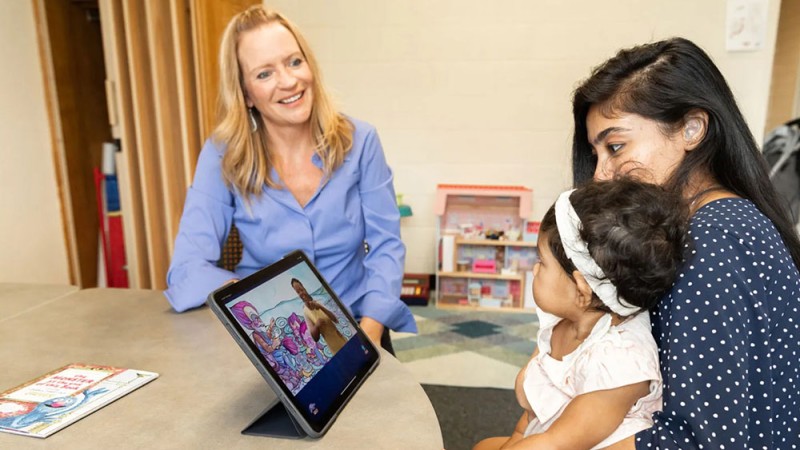
Exploring the Language Journey of Deaf Children
Professor Rain Bosworth investigates how people learn and process sign language through studies on deaf and hearing people’s use of vision and touch. Her work suggests that babies have an innate...

Psychology Professor named a Distinguished Member
John Edlund Psi Chi, the International Honor Society in Psychology, recently named psychology professor John E. Edlund, Ph.D., a Distinguished Member, the highest honor the organization bestows.

Empowering People Through the Power of Service Dogs
Irene Fobe '17 MS (experimental psychology), channels her research skills into a rewarding role as a service dog trainer, helping individuals with disabilities find their perfect canine companions.

Curriculum for 2024-2025 for Experimental Psychology MS
Current Students: See Curriculum Requirements
Experimental Psychology, MS degree, typical course sequence
Psyc electives, institute electives, students are also interested in.
- Human-Computer Interaction MS
- Engineering Psychology Adv. Cert.
Admissions and Financial Aid
This program is available on-campus only.
Full-time study is 9+ semester credit hours. Part-time study is 1‑8 semester credit hours. International students requiring a visa to study at the RIT Rochester campus must study full‑time.
Application Details
To be considered for admission to the Experimental Psychology MS program, candidates must fulfill the following requirements:
- Complete an online graduate application .
- Submit copies of official transcript(s) (in English) of all previously completed undergraduate and graduate course work, including any transfer credit earned.
- Hold a baccalaureate degree (or US equivalent) from an accredited university or college. A minimum cumulative GPA of 3.0 (or equivalent) is recommended.
- Satisfy prerequisite requirements and/or complete bridge courses prior to starting program coursework.
- Submit a current resume or curriculum vitae.
- Submit a personal statement of educational objectives .
- Submit two letters of recommendation .
- Entrance exam requirements: None
- Submit English language test scores (TOEFL, IELTS, PTE Academic), if required. Details are below.
English Language Test Scores
International applicants whose native language is not English must submit one of the following official English language test scores. Some international applicants may be considered for an English test requirement waiver .
International students below the minimum requirement may be considered for conditional admission. Each program requires balanced sub-scores when determining an applicant’s need for additional English language courses.
How to Apply Start or Manage Your Application
Cost and Financial Aid
An RIT graduate degree is an investment with lifelong returns. Graduate tuition varies by degree, the number of credits taken per semester, and delivery method. View the general cost of attendance or estimate the cost of your graduate degree .
A combination of sources can help fund your graduate degree. Learn how to fund your degree
Additional Information
Prerequisites.
Applicants should have completed at least 15 semester hours of coursework in undergraduate psychology or a related field (e.g., engineering, computer science, information technology), including one course in experimental psychology and one course in statistics.

Joseph Baschnagel

- Tina Sutton
Faculty in the department of psychology focus their research on a wide variety of topics across the discipline. They work closely with students to pursue their research and advise on thesis work. Learn more by exploring our psychology research areas .

Cognitive Science Speaker Series | Continual Learning for Vision and Multi-Modal Large Language Models
FriYAY ROAR | Ask Me Anything with the COLA Peer Navigators
Cognitive Science Speaker Series | When and how collective intelligence emerges from individual cognition
Related News
January 9, 2023
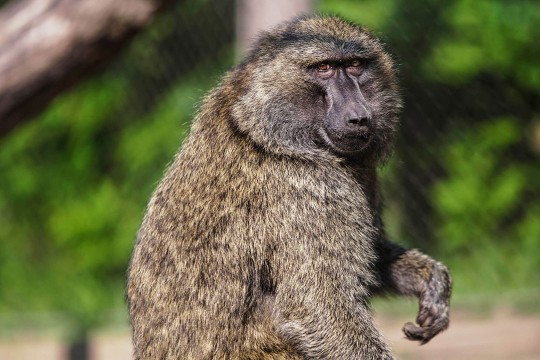
Teaching STEM by playing with primates
Caroline DeLong, professor and undergraduate program director of psychology, and a team of researchers at RIT and Carnegie Mellon University are exploring the idea of engaging children with STEM skills through the lens of interacting with animals. They are working with a group of olive baboons at Rochester’s Seneca Park Zoo.
August 17, 2022
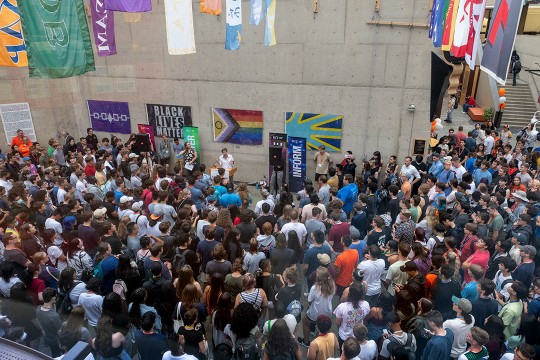
RIT Combined Accelerated Bachelor’s/Master’s Degree student enrollment steadily increases
There are 740 new RIT students enrolled in the Combined Accelerated Bachelor’s/Master’s Degree program, designed to offer highly focused, goal-oriented incoming students a one-of-a-kind opportunity to work toward a bachelor’s and master’s degree, starting from the first day of classes.
March 31, 2022
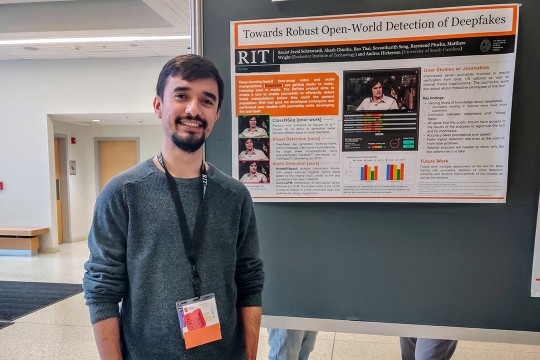
RIT’s Graduate Showcase celebrates scholarship April 7
From robot waiters to river otters, RIT’s Graduate Showcase will cover a wide variety of topics representing graduate scholarship from the university’s Henrietta and global campuses. The symposium, held April 7, will feature oral presentations in the morning and poster presentations, demonstrations, and visual exhibitions in the afternoon.

- Delaney Ball
- Assistant Director
- Office of Graduate and Part-Time Enrollment Services
- Enrollment Management
- 585‑475‑6933
- [email protected]

- Program Director- Experimental Psychology MS
- Department of Psychology
- College of Liberal Arts
- 585‑475‑6773
- [email protected]

Best Experimental Psychology colleges in the U.S. 2025
Best experimental psychology colleges in the u.s. for 2025.
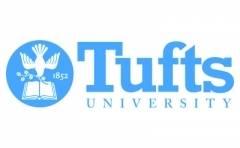
Tufts University offers 3 Experimental Psychology degree programs. It's a large, private not-for-profit, four-year university in a large suburb. In 2022, 98 Experimental Psychology students graduated with students earning 90 Bachelor's degrees, 5 Master's degrees, and 3 Doctoral degrees.
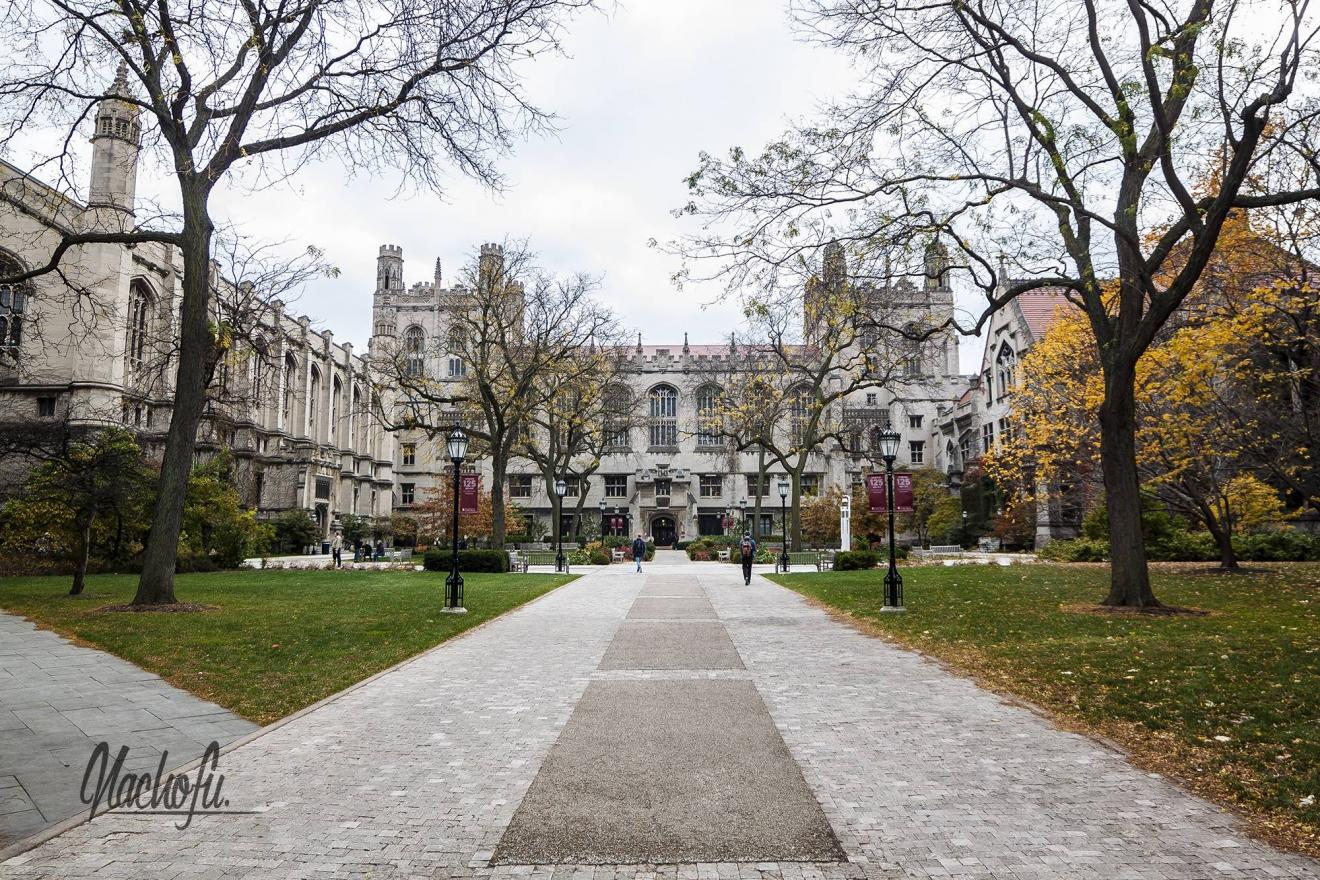
University of Chicago offers 3 Experimental Psychology degree programs. It's a large, private not-for-profit, four-year university in a large city. In 2022, 162 Experimental Psychology students graduated with students earning 105 Bachelor's degrees, 45 Master's degrees, and 12 Doctoral degrees.
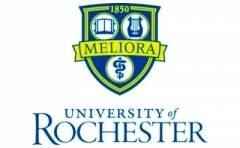
University of Rochester offers 3 Experimental Psychology degree programs. It's a large, private not-for-profit, four-year university in a midsize city. In 2022, 78 Experimental Psychology students graduated with students earning 72 Bachelor's degrees, 4 Doctoral degrees, and 2 Master's degrees.

University of California-Santa Barbara offers 3 Experimental Psychology degree programs. It's a very large, public, four-year university in a midsize suburb. In 2022, 474 Experimental Psychology students graduated with students earning 456 Bachelor's degrees, 14 Doctoral degrees, and 4 Master's degrees.
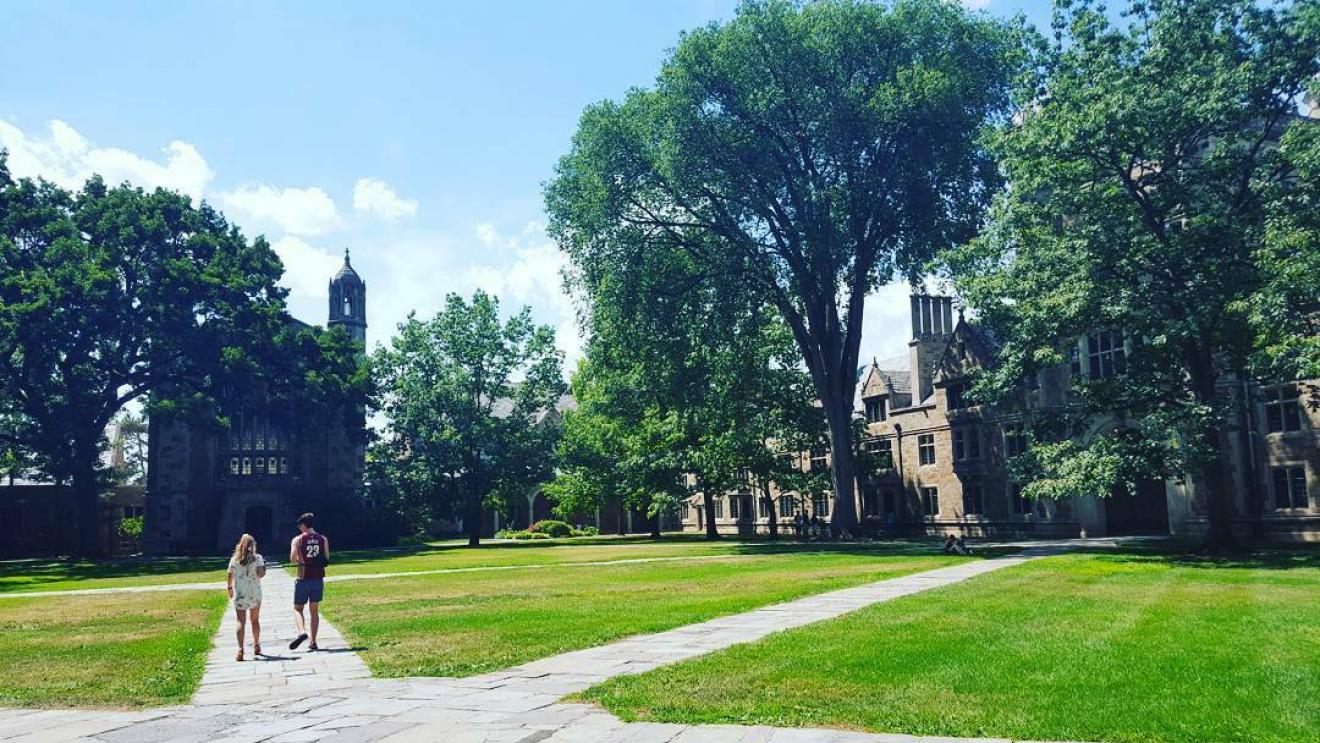
University of Michigan-Ann Arbor offers 3 Experimental Psychology degree programs. It's a very large, public, four-year university in a midsize city. In 2022, 414 Experimental Psychology students graduated with students earning 358 Bachelor's degrees, 31 Master's degrees, and 25 Doctoral degrees.
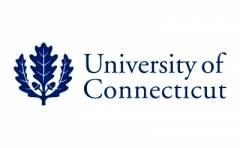
University of Connecticut offers 2 Experimental Psychology degree programs. It's a very large, public, four-year university in a large suburb. In 2022, 3 Experimental Psychology students graduated with students earning 2 Master's degrees, and 1 Doctoral degree.

The University of Texas at Dallas offers 2 Experimental Psychology degree programs. It's a very large, public, four-year university in a midsize city. In 2022, 15 Experimental Psychology students graduated with students earning 12 Master's degrees, and 3 Doctoral degrees.

Minnesota State University-Mankato offers 1 Experimental Psychology degree programs. It's a large, public, four-year university in a small city. In 2022, 5 Experimental Psychology students graduated with students earning 5 Certificates.
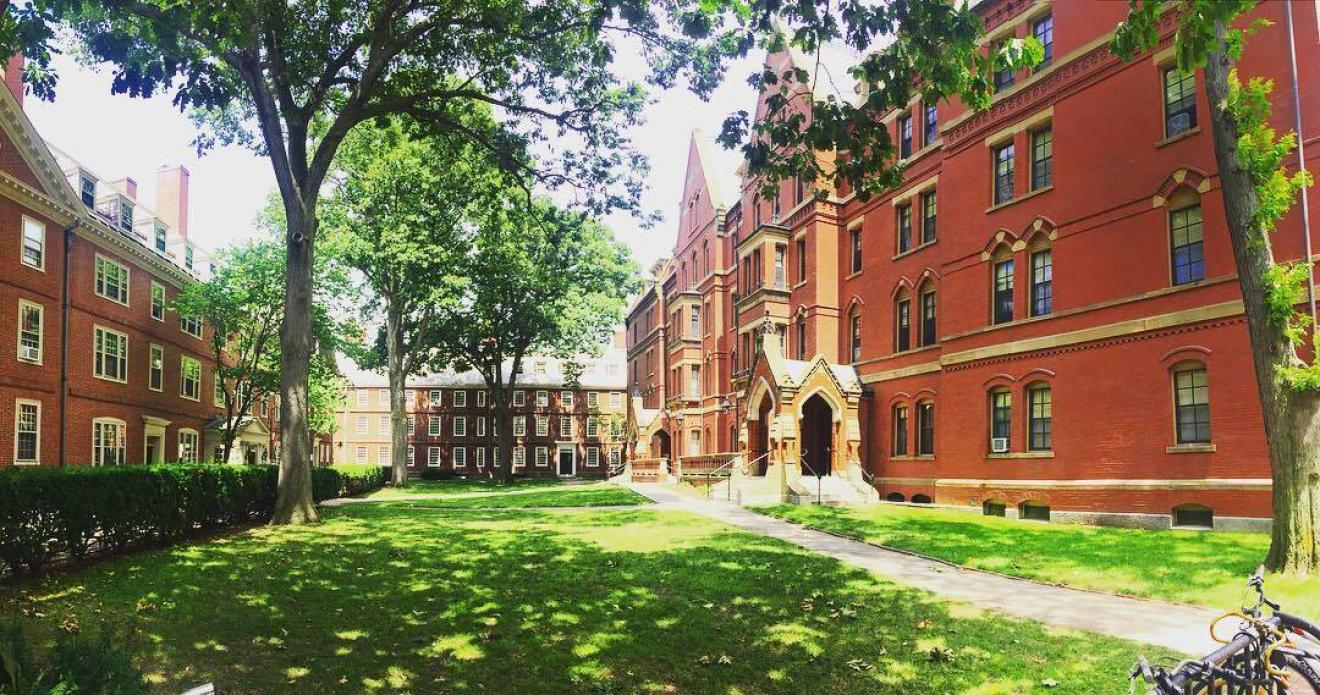
Harvard University offers 3 Experimental Psychology degree programs. It's a very large, private not-for-profit, four-year university in a midsize city. In 2022, 85 Experimental Psychology students graduated with students earning 66 Bachelor's degrees, 11 Doctoral degrees, and 8 Master's degrees.
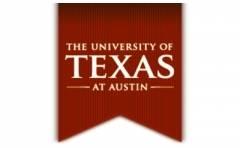
The University of Texas at Austin offers 3 Experimental Psychology degree programs. It's a very large, public, four-year university in a large city. In 2022, 1 Experimental Psychology students graduated with students earning 1 Master's degree.
Find local colleges with Experimental Psychology majors in the U.S.
List of all experimental psychology colleges in the u.s..
- myTU for Students
- Towson Online Services
- OneCard/TU ID Card
- Academic Calendar
- University Store
- Graduate Programs
- Application
- Request Information
- Take a Campus Tour
- Housing & Dining
- Tuition info
- Financial Aid
- Family Network
- Family Weekend
- Undergraduate Admissions
- Emergency Text Alerts
- Tiger Connect
- Alumni Events
- Alumni Benefits
- TU Magazine
- Request a Transcript
- Office of Alumni Relations
- myTU for Faculty & Staff
- BTU-Partnerships at Work for Greater Baltimore
- Entrepreneurship at TU
- Center for Applied & Economic Research
- Center for GIS
- Regional Economic Studies Institute
- Dr. Nancy Grasmick Leadership Institute
- Sponsorship & Advertising Opportunities
- Hiring TU Students
- Calendars & Events
- Directories
- Facts & Figures
- Mission & Strategic Plan
- Rankings & Achievements
- Administration
- Commitment to Diversity & Inclusion
- Accessibility
- Sustainability
- Consumer Information & Accreditation
- Undergraduate Studies
- Graduate Studies
- Accelerated Programs
- International Initiatives
- Colleges & Departments
- Off-Campus Locations
- Extended & Professional Education
- Summer Session
- Academic Services & Resources
- Commencement
- Graduate Admissions
- Tuition & Expenses
- Counselor & Advisor Resources
- Visit Campus
- Student Involvement
- Student Services & Resources
- Health & Wellbeing
- Safety & Security
- New Student & Family Programs
- Anchor Mission
- BTU-Partnerships for Greater Baltimore
- Entrepreneurship
- Strategic Partnerships & Applied Research
- Community Programs & Resources
- Arts & Culture
- Campus Landmarks & Features
- Planning Events & Conferences at TU
- Admissions & Aid
- Student Life
- Campus & Community
Information For
Experimental Psychology Concentration
Are you ready to launch your career in psychological research? The master’s in experimental psychology program will prepare you for top research jobs or Ph.D. programs. You can pursue research in cognitive, social, biological, developmental and clinical psychology.
Why Choose the Experimental Psychology Program?
Students in the experimental psychology graduate program receive extensive training in research methods, statistics and psychology content areas by engaging in project-based courses, laboratories and seminars. Our expert mentors are eager to collaborate with you in diverse areas of research including but not limited to social, cognitive, biological, developmental, and clinical psychology. Students enjoy our small class sizes, close interaction with faculty and peers, and access to spacious, well-equipped laboratories.
Degree Requirements
View degree requirements and course descriptions in the Graduate Catalog .
Admission Requirements and Deadlines
View admission requirements and deadlines to apply to the program.
Program Highlights
Alumni network.
Towson University is ideally situated near major public and private research institutions in the Maryland and Washington, D.C. area. Our alumni find employment in a variety of research related positions with employers such as National Institutes of Health, U.S. Army Research Labs, and private research firms such as Westat and IMPAQ. Our graduates also frequently continue their education in Ph.D. programs. Recently, students have been admitted to prestigious Ph.D. programs at Princeton University, Northwestern University, and Ohio State University.
Accessible Faculty
Our accomplished faculty are recognized scholars and dedicated teachers. They are also passionate mentors. Accessible and engaged, your professors will be there to give advice and encouragement, and connect you with opportunities and resources.
State-of-the-art Facilities
The department’s facilities include separate research labs with equipment for cognitive, biological, developmental, clinical, and social psychological research. Facilities also include state-of-the-art classrooms and computer labs for instruction on statistical software.
Ready to get started? Here's how to apply .
Fill out this form and we'll be in touch..

Experimental Psychology Fall Newsletter
Read about our current students, featured faculty, and the professional research accomplishments of our alumni!
Contact Information
Program director.

Master’s in Experimental Psychology Degree Programs
Written by Sarah Walsh
Clinical PsyD — Rutgers University | Clinical Psychologist
Have you ever found yourself pondering why people behave in certain ways or how the brain processes information? If so, you may be interested in the fascinating world of experimental psychology. Experimental psychology is an exciting and constantly evolving field that touches on various sub-disciplines, such as cognitive psychology, social psychology, and developmental psychology. It is an interdisciplinary field that incorporates a range of methodologies, including surveys, experiments, and statistical analysis, to name a few.
In this article, we’ll explore the exciting world of master’s in experimental psychology programs and resources. We’ll provide valuable insights into different programs’ curricula, related organizations, and current updates regarding the field of experimental psychology that will help.
Experimental Psychology Master’s Programs
If you’re passionate about psychology and interested in conducting research, pursuing a master’s degree in experimental psychology may be the right path for you. But, with so many master’s in experimental psychology programs available, it can be overwhelming to choose the right one for you. Don’t worry – we’ve got you covered!
Our research has identified several experimental psychology master’s programs that offer a comprehensive curriculum and hands-on research experience. And with our selected list of colleges offering master’s in experimental psychology programs, you can make a sound financial investment in your future.
University of Texas Permian Basin – Master of Arts in Experimental Psychology

The Accelerated Master’s Program in Experimental Psychology is designed for students interested in studying various psychological theories, such as cognitive, health, personality, and social psychology, along with research methods, statistics, and manuscript preparation. This program allows students to complete both their bachelor’s and master’s degree in experimental psychology within 150 credit hours.
To be eligible for admission, students must meet with their undergraduate advisor and the AMP coordinator to determine their eligibility, write a letter of intent that outlines their career goals and their desired faculty member to work with, complete 90 undergraduate hours, including 15 hours in psychology, and maintain a cumulative GPA of 3.0 and a 3.25 GPA in all psychology courses.
Western Illinois University – Master of Science in Experimental Psychology
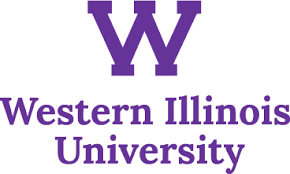
The General Experimental Psychology program is a two-year course that prepares students for doctoral studies or Master’s level careers in research and applied settings. With small class sizes and personalized attention from faculty members, students are free to pursue their research interests from their first semester.
Approximately 50% of graduates from this program go on to pursue doctoral programs in psychology across the US and Canada, while others find career opportunities in fields such as community college teaching, corrections, personnel management, children’s services, research, and management consulting. The program also offers graduate assistantships with full tuition waivers for a limited number of first-year students, and all domestic graduate students receive in-state tuition rates.
Xavier University – Master of Arts in Experimental Psychology

The Master of Arts in Psychology program is intended to provide students with a comprehensive understanding of general experimental psychology, which can be applied in related fields and further studies at the doctoral level. Students must enroll in the program on a full-time basis and maintain a semester grade point average of 3.000 or higher to be considered in good standing.
The program has a time limit of 6 years to complete all requirements. If a student has not defended their thesis by the second year, they are expected to enroll in PSYC 790, Continuous Major Research, until they have defended their thesis or reached the 6-year time limit. The student’s performance is graded based on the established standards by the course professor.
To remain in good standing, a semester grade point average of 3.000 or higher is required. If a student’s GPA falls below 3.000 or they earn a grade of “C (including C+)” or “F” in any 2 credit hour course, they will be placed on “WARNING” by the Dean of the College of Professional Sciences and will remain on warning for the rest of the program. A student whose semester GPA falls below 3.000 while on warning may be dismissed from the program.
University of West Alabama – Master of Science in Experimental Psychology

The University of West Alabama offers an MS in Experimental Psychology program that focuses on training students in psychology-based research methodology and statistics. These skills are essential for success in doctoral programs and highly valued by potential employers.
The program offers three different tracks, each with its own set of coursework and focus: the traditional option, clinical psychology, and health and sports psychology option. All students in the program will complete a core set of classes, but will also have the freedom to choose electives based on their own interests. The program can be completed in two years and includes options for completing a thesis or comprehensive exam. Successful completion of the program requires a 3.0 GPA, and students must complete all required coursework and either defend their thesis or pass the comprehensive exam.
Angelo State University – Master’s Degree in Experimental Psychology

Angelo State University’s College of Graduate Studies and Research is now accepting students for its new Master of Science degree program in experimental psychology, starting this fall. The degree program comprises 42 credit hours and can be completed with either a thesis or non-thesis option. To qualify for the program, candidates should hold a bachelor’s degree and have a cumulative undergraduate GPA of at least 3.25 or a GPA of 3.5 or higher in all psychology coursework.
Also, it is recommended that students complete at least nine credit hours of undergraduate psychology or related courses. The program is designed to focus on behavioral neuroscience and to enhance students’ expertise in conducting experimental research in laboratory settings for both human and non-human subjects, statistical analysis, and cognition. Coursework will cover a range of neuroscience topics, such as neuroanatomy, psychopharmacology, research methods, statistical analysis, cognition, and ethics.
University of Texas Rio Grande Valley – Master of Arts in Experimental Psychology

The Master of Arts (MA) in Experimental Psychology program provides students with two options: (1) Experimental Psychology, general; and (2) Experimental Psychology, Board Certified Behavior Analyst (BCBA) concentration. The general Experimental Psychology option is suitable for students interested in pursuing doctoral work in a non-clinical field of psychology. Graduates are likely to pursue careers in research or academia. On the other hand, the BCBA concentration is designed for students who want to achieve certification as a Board Certified Behavior Analyst. Students completing this course of study are eligible to sit the international certification exam upon completion of coursework and supervised experience.
Graduates of the general experimental psychology program will be prepared to advance to a Ph.D. program in one of the areas of experimental psychology or provide research support to ongoing public or private projects. The program is designed to help students gain the necessary knowledge to teach at the post-secondary level. Moreover, individuals who already have work experience in their respective careers may benefit from obtaining the M.A. in experimental psychology by opening up enhanced career opportunities.
Indiana State University – Master’s Degree in Experimental Psychology

This program is primarily designed for students who intend to pursue a doctorate degree in the experimental fields of psychology. The curriculum emphasizes research in areas such as biopsychology, cognition, development, and social psychology. However, it does not offer training for individuals interested in clinical or counseling psychology.
Students have the option to pursue either a Master of Arts or a Master of Science degree, but the majority of students in this program choose the former. Both degrees require a research project, but the Master of Arts is highly recommended for students who plan to apply for doctoral programs. Applicants to the program are required to have completed at least 12 credit hours of psychology courses, including introductory psychology, psychological statistics, research methods, and learning or cognition (or their equivalent).
University of Texas at El Paso – Master of Arts in Experimental Psychology
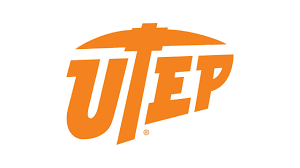
The MA program in General Experimental Psychology requires completion of 30 credit hours, which includes 12 hours of required coursework, 12 hours of elective coursework, and 6 hours of thesis.
The department offers two MA programs – Clinical Psychology and General Experimental Psychology – both of which are research-focused and require theses. The Clinical MA program prepares students for applied work as psychological associates, professional counselors, or to continue their education in a Clinical PhD Program. While the General Experimental MA program prepares students to pursue a PhD program.
In both the Clinical and General Experimental M.A. programs, students need to orally defend their thesis before a thesis committee, and all requirements must be completed within six years of entering the program. Additionally, no more than six credit hours of approved upper-division undergraduate courses can count for graduate credit.
McNeese State University – Master of Arts in Experimental Psychology

The MA program in Psychology at McNeese State University offers a concentration in General/Experimental Psychology, which is designed for students who wish to pursue advanced study in psychology at the Ph.D. level. The program requires a total of 39 credit hours, including 18 credit hours in the core curriculum and 21 credit hours of concentration classes. Students will gain expertise in experimental design, statistical analysis, and research methodology through coursework and a research-based thesis.
To be eligible for admission to the program, applicants must meet the minimum requirements, which include a minimum score of 285 on the GRE (Quantitative + Verbal) and 18 credit hours in psychology, including experimental, abnormal, and social psychology.
Moreover, applicants must be accepted by the Departmental Admissions and Retention Committee, which typically occurs after completion of 12 hours or the first semester of graduate work. Once accepted, students can work towards their Master of Arts in Psychology degree.
University of Central Oklahoma – Master of Science in Experimental Psychology
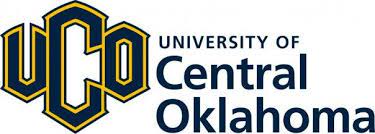
The M.S. in Experimental Psychology is a versatile program that equips students with the necessary knowledge for pursuing doctoral studies in psychology and related fields, as well as for specialized research-based professions. To complete the Experimental Psychology major, students must attain a minimum of 37 graduate credit hours. Students must take PSY 5273 Perception and Action, PSY 5383 Multivariate Analysis in Psychology, and additional coursework as specified by their advisory committee. In order to fulfill their degree requirements, students must submit an original and independent experimental research project that has the potential to be published in a scholarly journal.
Each student’s advisory committee acts as the reading committee for the master’s thesis. Students who expect to graduate with an undergraduate degree in Psychology from UCO may apply for the Accelerated Degree Program in Psychology – Experimental Psychology M.S. during their last semester of junior year (or within 30 hours of graduation) if they have a 3.0 overall GPA. Upon acceptance into the Accelerated Degree Program, students may take up to 9 graduate hours during their senior year, which will count towards both the Psychology bachelor’s degree as upper-elective credits, as well as the Psychology – Experimental Psychology M.S. degree.
Towson University – Master of Arts in Experimental Psychology

The Master of Arts program in Psychology at Towson University offers a concentration in Experimental Psychology, designed for students interested in various areas of psychological research. This program is suitable for those who have completed an undergraduate degree in psychology, as well as those who come from other majors but want to pursue research in psychology.
Graduates of the program will be well-prepared to enroll in doctoral programs in psychology or work in research jobs in public and private sectors. The program emphasizes research design and analysis, providing students with extensive training in these areas. Students have access to a diverse faculty and receive considerable personal attention.
Classes are small, with most having fewer than 16 students, and students are mentored by faculty in their areas of interest. As a result, graduates have been very successful in gaining admission to doctoral programs or finding employment in research design and analysis. Students may pursue the degree either full-time or part-time, with courses offered in the late afternoons and evenings.
San Jose State University – Master of Arts Program in Research and Experimental Psychology

The MA program in Research and Experimental Psychology is focused on developing students’ skills in psychological theory and research. To be admitted, students must have a sufficient background in psychology and related disciplines, with specific prerequisites possibly required for concentrations of study. Students who lack the necessary background may need to complete additional coursework before applying to the program.
Course selection for a concentration is done in consultation with the program coordinator, and students must complete at least 30 approved graduate units, with a minimum of 27 in psychology or statistics. Of these, at least 24 must be 200-level courses, and up to six units may be from 100-level courses with coordinator approval. Students must also complete an original, quantitative thesis of publishable quality.
Central Michigan University – Master of Science in Experimental Psychology

The Master of Science in Experimental Psychology program aims to prepare students for doctoral training in psychology and research positions in the public and private sector. Graduates of the program have had much success, with many going on to complete doctoral degrees in psychology and others becoming successful in a variety of fields. The program operates on a mentoring system, where students work closely with program faculty to develop research skills and establish relationships. At the end of each academic year, program faculty evaluate students’ progress in the program.
For advanced undergraduate students majoring in psychology who want additional training in experimental psychology, there is an accelerated program that allows them to obtain both their Bachelor of Science and Master of Science degrees in five years. To be eligible, students must meet all admissions requirements for the Master’s of Science in Experimental Psychology program and have completed at least 84 credit hours of undergraduate coursework, including all General Education, University Program, and competency requirements. Students are expected to be engaged in research with a faculty member prior to admission to the accelerated program.
Brooklyn College CUNY – Master of Arts Program in Experimental Psychology
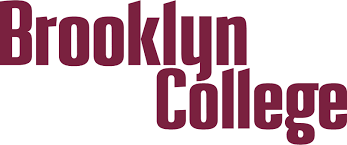
The master’s program in experimental psychology is designed to prepare students for careers in psychological research at the doctoral level and data-intensive jobs in industry. An M.A. in Experimental Psychology can help students prepare for psychological research at the doctoral level, gain expertise in research methods and advanced techniques for data analysis, and explore personal or professional interests in psychology.
This program has a number of advantages that make it an attractive option for those pursuing careers in research and academia. Firstly, the program boasts a team of over 20 full-time faculty members who are available for collaboration and learning. These faculty members are experts in their respective fields, bringing a wealth of knowledge and experience to the program. Students have the opportunity to work closely with these faculty members, benefiting from their guidance and mentorship as they develop their skills and knowledge.
Nova Southeastern University – Master of Science in Experimental Psychology

At the College of Psychology, the Master of Science in Experimental Psychology degree program lays a robust academic foundation for students in the theories and concepts of experimental psychology. The curriculum imparts comprehensive skills in scientific inquiry and research methodology that can prepare students for doctoral education in psychology or various career opportunities in industrial, government, private consulting, health care, and community settings.
Located on NSU’s main campus, the Master of Science in Experimental Psychology program trains graduates to become proficient leaders in a diverse range of professional positions and settings. Graduates can pursue doctoral education in subfields of experimental psychology, or seek employment opportunities as Adjunct Professors, Business or Government Agency Leaders, Lab Managers, Market Analysts, Psychology Lecturers, Research Project Managers, and Statistical Consultants.
University of North Carolina Greensboro – Master of Arts Program in Experimental Psychology

In the Terminal Masters program, students commonly collaborate with a faculty member from one of the experimental areas, such as developmental, cognitive, and social psychology, or psychopathology and developmental psychopathology. Although clinical faculty members may also supervise students’ research programs.
Experts in quantitative psychology and biological psychology are among the program’s faculty, qualified to direct theses. To expand their research experience, students are encouraged to attend colloquia and lab meetings and participate in research opportunities available in any lab with the necessary facilities.
Close collaboration between faculty members and students aids in the development of proficiency in the core areas of psychology and their methods. The primary objective of the Terminal Master’s degree track is to equip students with the necessary skills to conduct research competently and ethically. The Terminal Master’s Program is a full-time, day program that offers an immersive learning experience to students.
Central Washington University – Master’s Degree in Experimental Psychology

The Master’s Degree in Experimental Psychology (MS EXP PSY) is ideal for students seeking research positions in industry and other institutions or those intending to pursue doctoral programs. With a total of 45 credits, the program offers intensive training in student-initiated research across various areas of experimental psychology. Students acquire statistical and methodological knowledge necessary to examine fundamental or applied issues and function as professional research psychologists. Additionally, students gain an appreciation of the scientific basis of diverse fields of psychology.
Students receive individualized faculty mentoring to support their research throughout the program. The program structure enables students to complete the majority of their required coursework during the first year and, in collaboration with their faculty mentor, develop a thesis proposal. In their second year, students can fulfill the remaining coursework credits and complete a data-based thesis.
University of Alabama in Huntsville – Master of Arts in Experimental Psychology

The M.A. program in Experimental Psychology is a comprehensive program that encompasses 30 hours of coursework and culminates in the completion of a thesis. For those who opt for the non-thesis option, the program requires 33 hours of coursework, including an internship, and successful completion of comprehensive exams.
The program is primarily aimed at students who desire to continue scholarly study, research, and writing, but is also suitable for those interested in applying their skills and knowledge in the professional workplace. Students gain expertise in various aspects of experimental psychology, including research methods, data analysis, and the scientific basis of psychology. With this training, they can pursue advanced academic programs or careers in a range of professional settings.
Moreover, students receive the benefit of close mentorship from faculty members, who help guide them in their research and ensure they receive a quality education. Overall, the M.A. program in Experimental Psychology provides students with the necessary tools to excel in their future endeavors in academia or the workforce.
Bucknell University – Master of Science in General Experimental Psychology

The Department of Psychology has an exclusive Master of Science program in general experimental psychology designed for qualified candidates. This comprehensive program lasts for two years and is full-time, providing students with an in-depth education in general experimental psychology. Due to our rigorous selection process, we admit only two to three students per year, ensuring the highest level of academic standards.
Upon completion, our program equips graduates with the knowledge and skills required to pursue a doctoral program in clinical or cognitive psychology, human development, neuroscience, social psychology, or behavioral medicine, among other fields.
The program follows a “research apprentice” model that emphasizes close collaboration between students and their advisors, as well as other faculty members, on research projects. Thus, they prefer applicants who demonstrate a strong commitment to conducting high-quality empirical research and desire to contribute actively to the department community.
Middle Tennessee State University – Master of Arts in Experimental Psychology
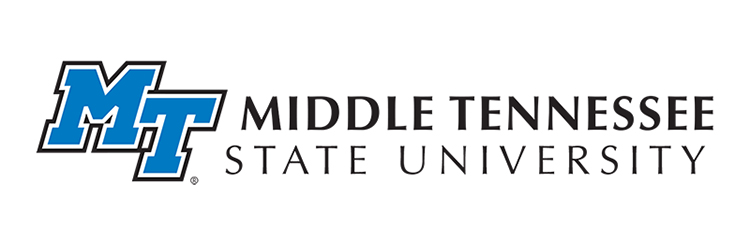
The Experimental Psychology Program is aimed at enhancing your professional and academic competitiveness by broadening your knowledge and expertise in research methods and statistical analysis, as well as the fundamental principles of psychology. This two-year program offers graduate assistantships to help defray costs.
During your tenure, you will work closely with our exceptional faculty, who have diverse areas of expertise, and use cutting-edge facilities to actively participate in research. As a result, you will have the opportunity to make significant contributions to research in fields such as social psychology, learning, and developmental psychology, as well as cognitive neuroscience or psychopharmacology.
Georgia Southern University – Master of Science in Experimental Psychology

If you enroll as a graduate student in experimental psychology, you will have the opportunity to conduct experiments and study human behavior. You will delve into various aspects of human cognition, including how we think, learn, pay attention, make decisions, and respond to social environments, among others. Upon completion, you will earn a Master of Science degree in Psychology with a concentration in Experimental Psychology.
The program format is in-person on the Statesboro Campus, with a total of 36 credit hours required for graduation. The program is designed to be completed in four semesters, with admission offered exclusively in the fall semester. A thesis is mandatory for program completion, ensuring that students gain essential research skills and experience.
Moreover, the program offers an optional teaching emphasis to students who aspire to pursue a career in academia.
University of Tennessee Knoxville – Master of Arts in Experimental Psychology
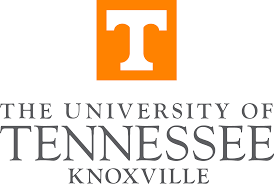
Students in this program will gain extensive knowledge in these areas, but are required to select a particular area of focus and conduct research primarily in that area. In their application, graduate applicants must identify their preferred area of research and faculty member(s) to work with. Every March, the Experimental faculty reviews the progress of all students in the M.A. program based on coursework, research activities, and Advisory Committee recommendations. It is essential to meet with your Advisory Committee before the annual evaluation meeting. Students will be notified of evaluations each year.
To officially form a student’s Master’s Committee, students must be admitted to candidacy at least one full semester before graduation and must comply with all Graduate School deadlines. The form should be submitted after fulfilling all departmental requirements, and committee members must sign the form. Afterward, students must bring the form to Connie Ogle in 312C for obtaining the Department Head’s signature and forwarding it to The Graduate School.
The UT Graduate School requires students to complete Master’s degree requirements within five years of admission. If necessary, students may petition the Graduate School for extensions upon the Departmental Faculty’s recommendation.
Rochester Institute of Technology – Master of Science in Experimental Psychology

At the graduate level, in combination with an advanced degree, cooperative education and internships offer you unparalleled credentials that truly distinguish you. Their faculty are experts in diverse fields, including addiction, attention, cognition, development, evolutionary psychology, forensic psychology, perception, psychopathology, and social psychology, among others.
As part of the MS in experimental psychology program, students must choose either a capstone project or a thesis. For students who opt for the capstone project, a range of projects will demonstrate their ability to apply their knowledge to various assignments. Students must complete various written projects (white paper, focused literature review, and a resume) and an oral presentation to show their proficiency in their areas of expertise.
For students who choose to complete a thesis, they must select a thesis adviser in the first year, followed by a thesis topic and research proposal in the second year. In the second year, students will conduct their thesis, including data collection and analysis. Ongoing research activity is expected during the summer term of the program. Upon completion of the thesis, students will present their findings publicly and defend their research before a thesis committee.
Experimental Psychology Associations, Journals, and Resources
Experimental psychology is a fascinating field that explores the complex relationship between the mind and behavior. As an experimental psychologist, it’s important to stay up-to-date with the latest research, theories, and techniques in the field. To do so, you’ll need access to reputable associations, journals, and resources that provide valuable insights and knowledge.
Society of Experimental Social Psychology : SESP, or the Society of Experimental Social Psychology, is a global scientific organization that is dedicated to the advancement of social psychological research. Its members are typically highly qualified, possessing a PhD in social psychology or a related field, and work in academic or research settings.
At SESP, their primary mission is to foster opportunities for direct and personal scientific exchange and collaboration among social and personality psychological scientists. The organization achieves this through our annual meeting, which provides an ideal platform for researchers to share their work, exchange ideas, and forge new collaborations.
Experimental Psychology Journal : The Experimental Psychology Journal is committed to publishing innovative, original, and high-quality experimental research. As the name suggests, the journal’s focus is on experimental methodology, and therefore, it welcomes papers based on experiments from all areas of psychology.
In other words, the scope of the journal is not restricted to any particular subfield of psychology, but rather encompasses any research that utilizes experimental methods to investigate human behavior and mental processes. This inclusive approach ensures that the journal offers a diverse range of topics and findings, reflecting the broad scope of experimental psychology as a whole.
New York State Association for Behavioral Analysis : The New York State Association for Behavioral Analysis (NYSABA) has a mission to safeguard and advance the principles of the science and professional practice of behavior analysis within the state of New York. As the state chapter of the Association for Behavior Analysis International (ABAI), a global organization dedicated to researching the experimental analysis of behavior, we work towards promoting and preserving the integrity of this field within New York.
By doing so, we hope to create an environment in which behavior analysis can thrive, and where its principles can be applied to benefit the wider community. Through our work, we aim to contribute to the ongoing development of evidence-based practices and policies, and to promote awareness of the important role that behavior analysis can play in enhancing the quality of life for individuals and communities alike.
Society of Experimental Psychologists : The Society for Experimental Psychology and Cognitive Science, which is Division 3 of the American Psychological Association (APA), serves as a platform to address the interests and concerns of psychologists whose research and primary area of study lies within the field of general experimental psychology.
The organization’s primary mission is to foster the growth of research and teaching in the field of experimental psychology and its numerous sub-disciplines. It does so by supporting experimental psychology through research, education and training, advocacy, policy, and leadership in APA governance.
Nevada Association for Behavior Analysis : The Nevada Association for Behavior Analysis (NABA) has a continuing mission to promote intellectual exchange and professional development in all aspects of behavior analysis, including philosophical, theoretical, experimental, applied, and practice. The organization is dedicated to advancing the field of behavior analysis in the state of Nevada.
NABA aims to provide a platform for individuals interested in behavior analysis to exchange ideas, collaborate, and learn from one another. By fostering a culture of intellectual exchange and professional development, the organization hopes to enhance the quality of behavior analysis research and practice in Nevada.
Four Corners Association for Behavior Analysis : The Four Corners Association for Behavior Analysis (FCAB) is an independent non-profit organization that is affiliated with the Association for Behavior Analysis International. The primary goal of both organizations is to promote the experimental, theoretical, and applied analyses of behavior.
The FCAB is comprised of members who live, teach, conduct research, and practice in the Four Corners region of the United States. As a professional organization, the FCAB provides its members with a platform to exchange ideas, collaborate on research projects, and advance their professional development.
Bexar County Psychological Association : If you are a practicing psychologist, student, or anyone with a keen interest in psychology, the BCPA welcomes you to join their community and contribute to the vibrant and dynamic field of psychology in Bexar County.
The association promotes inclusivity by welcoming a broad range of areas within psychology, such as psychotherapy, psychological assessment, consultation, program evaluation, quantitative and qualitative research, school psychology, industrial/organizational psychology, neuropsychology, and experimental psychology. Through its various activities and events, the association fosters the exchange of ideas, the formation of new partnerships, and the advancement of the field of psychology as a whole.
Experimental Data and Mental Health Statistics
When it comes to understanding the complex relationship between the mind and behavior, experimental psychology plays a vital role. Experimental psychologists use data and statistics to explore the many factors that influence mental health and well-being. By analyzing data related to mental health, they can gain valuable insights into the prevalence, causes, and potential treatments for mental health disorders.
But, let’s face it – data and statistics can be daunting, especially if you’re not a numbers person. However, it’s essential to understand the role of experimental data and mental health statistics in the field of psychology.
- According to the World Health Organization (WHO), approximately 1 in 4 people in the world will experience mental illness at some point in their lives. This highlights the need for continued research and treatment of mental health issues.
- Research has shown that exercise can have a positive impact on mental health. A meta-analysis published in the Journal of Psychiatric Research found that exercise is associated with a significant reduction in symptoms of depression and anxiety.
- Cognitive-behavioral therapy is a form of talk therapy that has been shown to be effective in treating a variety of mental health conditions, including depression and anxiety. A review published in the Journal of Psychiatric Research found that CBT is a highly effective treatment for depression and anxiety.
- Research has shown that social media use can have a negative impact on mental health , particularly among young people.
- Trauma can have a significant impact on mental health, leading to conditions such as PTSD and depression. It was found that trauma exposure is associated with increased risk of mental health problems, particularly among women.
- Medication is generally effective in treating depression and anxiety, but may be most effective when used in combination with other treatments such as therapy.
© 2023 Psychology Masters Programs
Privacy Policy | Terms of Condition
- Online Psychology programs
- Bachelors Programs
- Masters Programs
- PsyD/Doctorate Programs
- Counseling programs
- Clinical Psychology programs
- Forensic Psychology programs
Master’s in Experimental Psychology Degrees
View more featured 100% online psychology programs accepting applications for 2024.
What can you do with a Master of Experimental Psychology degree?
Experimental Psychology is a branch of psychology that deals directly with obtaining answers about human behavior through the use of the scientific method.
Although human behavior is a highly observable entity, Experimental Psychologists want to look beyond what can be seen in order to draw conclusions about the unseen causes of behavior. This can be achieved through using psychological theory to state a hypothesis and testing that hypothesis to determine the causes of different behaviors or outcomes.
This type of experimentation is useful in determining environmental causes of negative behaviors, which can play a role in developing more effective public systems for the reduction of crime, creating more comfortable learning environments in an educational setting, and identifying areas of change within early childhood development.
This incredibly applied field of psychology has many applications and uses in modern society. Having the ability to describe, predict, and change behavior makes professionals in this field important to the development of many systems, including those in education, employment, substance abuse, mental health, and research.
Learn more about Online Experimental Psychology Master's Degrees.
What is Experimental Psychology?

This includes creating a hypothesis, selecting participants randomly, defining dependent and independent variables, manipulation of independent variables, and observation of dependent variables.
Other methods for testing within this field include behavior observation, independent case studies on individuals or groups, and correlation research. Each of these methods can provide for accurate scientific assumptions about why behaviors are occurring and what in the environment may be the cause.
Experimental Psychology is a subject that can also lead to careers in education, which can contribute to instructing more knowledgeable professionals to work in the field. Consulting psychologists in this field may also provide insight to companies or entities that seek answers about behavior prediction, change, or improvement. This interesting branch of psychology has many different applications, all dealing directly with human behavior and analysis.
Overview of Master's in Experimental Psychology Degree Programs
There are a few things to consider before choosing a Master's in Experimental Psychology program for your higher education. Degree programs in this discipline are offering both in tradition and online format.
Both have similar course work and instructors, but online degree programs can provide students with more opportunity for independence with their education, rather than having to plan their everyday lives around class schedules. Regardless of which method of instruction you choose, you should see similarities within each degree program.
One university offering the Master's in Experimental Psychology program - Middle Tennessee State University - requires students to complete 36 credit hours in order to graduate from their program.
This includes a 27 credit hour requirement for core courses, 3 hours in literature review and reading in psychology courses, and 6 elective hours. This program at MTSU allows students to complete the program in around 2 years on average.
How Long Does Does An Experimental Psychology Take?
Educational programs in Experimental Psychology typically last 2 years, but there are some that can be completed at faster or slower rates . Depending on what you require as a student, any of these programs could be what you are looking for. Since this is a highly experimental degree program, some students choose to take hybrid or traditional routes in order to have the hands on experimental experience needed to be an accurate researcher in the field. However, innovative online degree programs integrate independent research and experimentation as a part of their programs as well.
Throughout the duration of a Master’s in Experimental Psychology program, students may have the opportunity to take courses that are relevant to Experimental Psychology, alongside developing and testing their own hypotheses.
Traditional programs in Experimental Psychology may also include laboratory experiences that include technology such as electroencephalography and specially set rooms for observations. Depending on where you choose to enroll in a degree program, you may find your experience to vary from another.
Example Courses in Experimental Psychology
Courses in Experimental Psychology typically take into consideration the need for advanced knowledge in research and experiment design. Since these topics are touched on in undergraduate programs, most of the courses in the master’s level program are advanced and provide more practical information for upcoming psychologists.
In addition to experiment-driven learning, students may also learn more about the diverse attributes of human personality and development. Our team of educational experts has provided a list of some common courses for Experimental Psychology degree programs below.
Research Methods for Behavioral Sciences
This course can teach students how to properly organize a research project for future experimentation. Students taking this course may be expected to locate resources and provide new and innovative ideas to their area of study.
Statistics includes a look into graphical representation of data, working with descriptive statistics, probability, variance, and statistical interference. The relationship between statistical analysis and behavioral experimentation may also be discussed throughout this course.
Theories of Personality
Students in this course can learn about different theories of personality are described and understood in current society. Current ideas and theories in personality will be looked at in detail in order to give students a more modern understanding of personality acquisition and change throughout the lifetime.
Advanced Developmental Psychology
While in this course, students may take a look at the most modern theories regarding lifespan development. Physical, cognitive, and social development are a few of the main topics that are touched on in this course, as well as emotion change throughout the lifetime.
What can I do with a Master’s in Experimental Psychology?
Experimental Psychology is primarily based on research-driven experimentation that seeks to better understand human behavior and mental processes. This field can be applied to any area that pertains to human behavior, which can be a broad application for just one subject.
Most Experimental Psychology graduates have the desire to work in an experimental setting, designing tests to determine the causes and triggers for behaviors. However, there are areas in which Experimental Psychology professionals can apply their expertise outside of a lab setting. Our team has researched some of the prevalent areas for graduates within this field to find a career. Take a look at some potential career opportunities below.
- Experimental Psychologist
- Research Psychologist
- Statistician
- Education Research
- College Professor of Psychology
- Consultation
Potential Earnings/Outlook in Experimental Psychology
Depending on where you live, how long you have worked in the field, and what type of field you work in, you may find the earning potential to be incredibly diverse. Experimental Psychology professionals can be found in educational settings, research, consultation, or even with the government. Your ability to earn relies solely on your level of education and the type of field you choose to work in with your degree. Take a look below this section at some salaries for related positions.
- Psychologists – all other : $95,710 on average per year ( BLS ).
- Psychologists : $75,230 on average per year ( BLS ).
- Psychology Teacher – Post Secondary : $84,440 on average per year ( BLS ).
- Statistician : $85,160 on average per year ( BLS ).
Ready To Start Your Master’s in Experimental Psychology?
You know the details around the degree, courses you might expect, and how long the master’s degree will likely take you to complete. Now you can review our extensive database of available Experimental Psychology Master’s degrees below.
Compare the finite details of each one and ask for more information about the ones that sound the most appealing. It will help you figure out which one will best match with your schedule, learning style, and degree requirements.
List of Programs
Top psychology degrees.
Masters in Psychology Degrees by Program
- Online Masters in Psychology
- Masters in Applied Psychology
- Masters in Behavior Analysis
- Masters in General Psychology
- Masters in Childhood Psychology
- Masters in Clinical Psychology
- Masters in Community Psychology
- Masters in Counseling Psychology
- Masters in Engineering Psychology
- Masters in Experimental Psychology
- Masters in Forensic Psychology Degree
- Masters in Psychiatric Nurse Practitioner
- Masters in School Counseling Psychology

Graduate Program in Experimental Psychology
The University of Mississippi Graduate Program in Experimental Psychology provides the rigorous and supportive scientific training that prepares graduates for outstanding careers in a broad spectrum of established and emerging fields. From academic careers in teaching and research, to careers in health sciences, research/medical administration, drug development and beyond, graduates of the program are experts in applying the scientific method to psychology problems. Specific programs of study leading to the doctoral degree include behavioral neuroscience, cognitive psychology, and social psychology.
The Experimental Psychology program offers…
An individualized, career-oriented course of study:
A close apprentice relationship with a major professor for mentorship in research, teaching, and career development.
Immediate career development through research leading to publication and conference participation.
Breadth of knowledge and experience:
Scientific programs of study in behavioral neuroscience, cognitive psychology, and social psychology.
Interdisciplinary opportunities in collaboration with the University’s Program in Clinical Psychology, Research Institute for Pharmaceutical Sciences, School of Business Administration, other departments, and national research centers on the campus.
Opportunities to work with service institutes in the surrounding region, including the North Mississippi Regional Center in Oxford.
Research achievement:
Develop expertise in methodological, statistical, and technical experimental approaches.
Communicate with both professional and broad audiences important findings.
Specialized research opportunities in conjunction with major grants from the National Institute of Mental Health, the National Institute on Drug Abuse, the Office of Naval Research, and the U.S. Department of Education.
Teaching excellence:
Pedagogical training and mentorship
Teaching assistantships for classroom and laboratory instruction.
Financial Support:
Funding opportunities include departmental research and teaching assistantships and Graduate School Honors Fellowships, Minority Fellowships, and Dissertation Fellowships. Students are guaranteed for five years.
Applications:
All application materials are due by December 1. Admissions information is available online or you may request additional information by contacting us via e-mail or via mail.
Department of Psychology
Peabody Building
The University of Mississippi
University, MS 38677
Experimental Psychology Policies and Procedures Manual
For information on how to apply, see Application Information
Experimental Policies and Procedures Manua l
Application Information
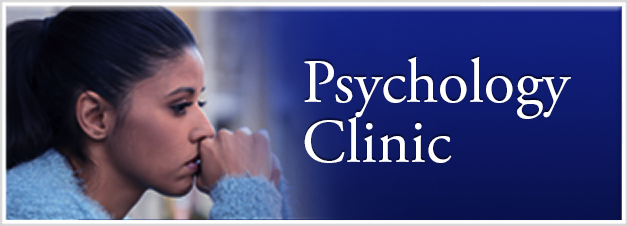

IMAGES
COMMENTS
Experimental psychologists use experimental methods on humans and animals to study the psychology of topics such as (but not limited to) development, memory, emotion, cognition, learning, and sensory/perception.
May 5, 2023 · Experimental psychologists use experimental methods on humans and animals to study the psychology of topics such as (but not limited to) development, memory, emotion, cognition, learning, and sensory/perception.
Nov 20, 2014 · These top graduate programs in experimental psychology, will empower you to delve into groundbreaking research and discoveries.
Compare the top experimental psychology graduate schools in the U.S. Find the top graduate schools offering masters in experimental psychology degrees and PhD in experimental psychology programs.
Contribute meaningful work to multiple fields of psychology while you explore and apply scientific methods to human development, social interactions, and behavioral relationships in an experimental psychology master’s degree targeted toward your career aspirations.
In 2022, 414 Experimental Psychology students graduated with students earning 358 Bachelor's degrees, 31 Master's degrees, and 25 Doctoral degrees. 4.4375 Based on 32 Reviews Learn More
The master’s in experimental psychology program will prepare you for top research jobs or Ph.D. programs. You can pursue research in cognitive, social, biological, developmental and clinical psychology.
In our experimental psychology master's program, you'll study how these behavior-mind connections manifest across a variety of situations, from across cultures to across ages and across species. Explore the important questions at the heart of human behavior.
Apr 16, 2024 · In this article, we’ll explore the exciting world of master’s in experimental psychology programs and resources. We’ll provide valuable insights into different programs’ curricula, related organizations, and current updates regarding the field of experimental psychology that will help.
Mar 4, 2021 · Ready To Start Your Master’s in Experimental Psychology? You know the details around the degree, courses you might expect, and how long the master’s degree will likely take you to complete. Now you can review our extensive database of available Experimental Psychology Master’s degrees below.
The University of Mississippi Graduate Program in Experimental Psychology provides the rigorous and supportive scientific training that prepares graduates for outstanding careers in a broad spectrum of established and emerging fields.